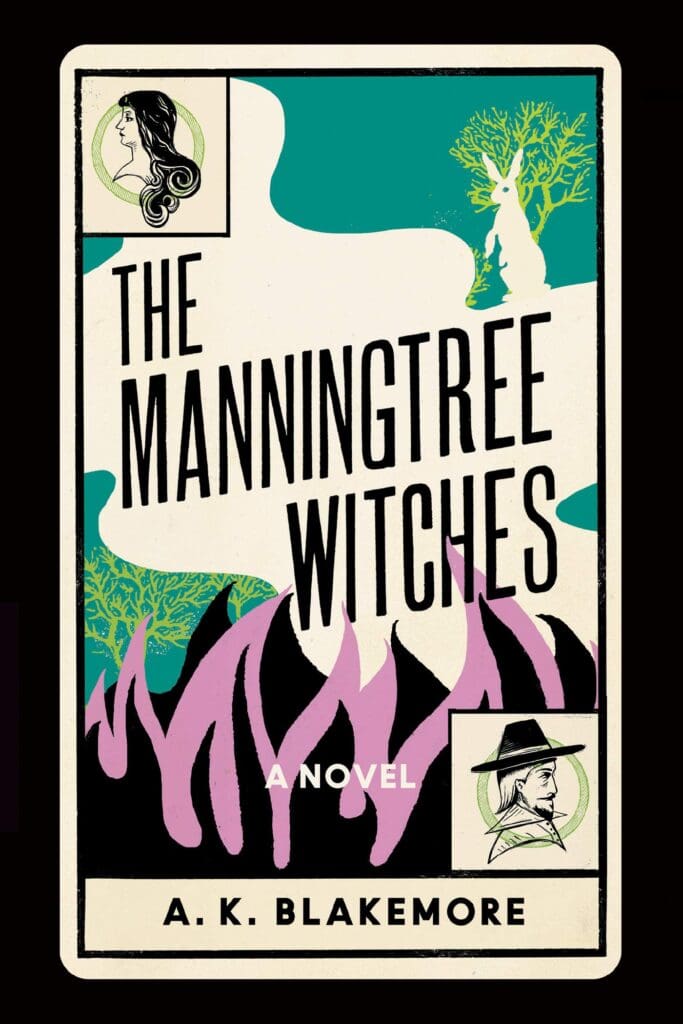The Manningtree Witches (320 pages; Catapult) is about all the ugliness that comes with being a woman in a society in which they are oppressed and deemed inferior. Set in the small English town of Manningtree, A. K. Blakemore’s first novel illustrates the anti-witch hysteria sweeping the townspeople as related by Rebecca West, a young woman who lives in Manningtree with her widowed mother. It is a picture both vivid and ugly, and though the book is set in the 17th century it feels relevant to our present day.
Rebecca makes for an insightful protagonist, describing the extraordinary and horrific events unfolding around her with intelligence and dark humor. Her ability to cut through the miasma of deception and paranoia pervading Manningtree and to see things as they truly are grants us a clear view of life as a woman during the witch hunts. Rebecca’s keen powers of observation, and a combination of wits and luck, allow her to escape the fate of the many innocent women accused of consorting with the Devil. But escape comes with a price.
Women are at the heart of this novel: old women, young women, cruel, kind, honest, deceptive. Blakemore allows the women in her novel to be many things at once—they are complex and fully realized. There are some delightful and even joyous moments amidst the grim events, including the conversations between female characters when no men are around: the bickering of the older women as they criticize the antics of the younger generation; or the giddy gossip between Rebecca and her friend Judith as they wonder what Rebecca’s future husband might look like.
Yet the relationships between women can also serve as a source of woe. Rebecca has a tense relationship with her mother, whom others speculate is a witch even before Manningtree becomes infected with the witch-hunting frenzy. The onset of the witch-hunts tests the trust and loyalty between mother and daughter. It is a complicated and poignant relationship that quietly proves to be one of the strongest and most central aspects of the novel.
Although the novel’s sympathies clearly lay with the persecuted and marginalized women, the story’s persecutors are also given a nuanced portrayal. Blakemore touches on the social, economic, and religious factors that primed the residents of Manningtree. The men having departed to fight in the war, the famine, the growing Puritan radicalism; all these factors are present throughout the novel, and they all feed into the town’s need to persecute its own. These changes and hardships do not excuse the heinous actions, but their presence makes it easier for us to understand how these people could have felt so empowered and compelled to torture and execute so many townsfolk.
In contrast to its bleak subject, The Manningtree Witches employs beautiful prose. Blakemore comes from a poetry background, and her facility with language is evident. Her words are thoughtfully chosen, enchanting and compelling the reader. The sentences are immersive even when describing something repulsive, accentuating how sickening the situations are. The torture of the old woman Mother Clarke, conducted by townswomen attempting to prove that she is a witch, is described as such: “Mother Clarke’s blood is slow to run, but bleed she does, eventually, little constellations beading across sagging breasts and belly, Serpens and Ursa Minor of warm ruby.” Blakemore’s sporadic use of archaic words helps ground the story in its historical setting and provides a sense of authenticity. Ultimately, her novel grants sympathy and nuance to women who were treated unjustly in their day, and tells their story vividly.

